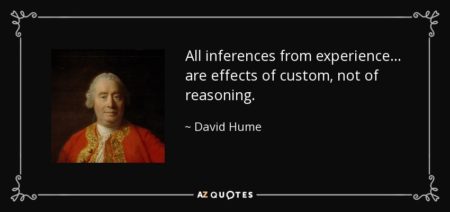So, here’s one of the biggest challenges on the left that I’ve been thinking about lately. We start with the core of a good idea. The idea even works well in specific situations. But then we turn that idea into some kind of Iron Law, trying to apply it way beyond its limits. The result? It doesn’t work so well any longer! I think we see this problem a lot with appeals to the notion of ‘lived experience.’
What’s going on here? What’s wrong with the appeal to lived experience?
Lived Experience – Its Uses and Limits
There’s nothing wrong with the appeal to lived experience, as far as it goes. Lots of people on the left appeal to lived experience as a source of political knowledge and legitimate authority. And they’re right to do so in many cases.
For example, black Americans, on average, know more about racism than white Americans. In a discussion of racism, especially a discussion about the details of experiences of racism (though probably even a discussion of theoretical accounts of racism), a black American in the room, on average, will have more to add than a white American in the room, on average.
We could make an analogous point about ‘women’ and ‘sexism,’ ‘trans women’ and ‘transmisogyny,’ ‘disabled people’ and ‘ableism,’ and so on.
But I italicized some words above. I made a rather qualified and nuanced point, not an absolute one. Black people don’t automatically know more about racism than white people just because they’ve lived life as black people. Women don’t automatically know more about sexism than men just because they’ve lived life as women. And different black people and women have unique perspectives from one another on racism and sexism. Lots of other factors come into play: education and learning, class and income history, and so on.
None of this is very controversial in the abstract. Just about all of us know it in some sense. But we tend to ignore it in practice. We especially ignore it in cases where details of a person’s lived experience lead them astray. That is to say, in cases where a specific lived experience leads to false beliefs.
Peanuts on Airplanes
To show a case of this, I’ll talk about a less ‘political’ (though not entirely non-political) example. A small but vocal number of advocates has pushed for years to ban peanuts on airplanes. Why? They claim even peanuts eaten by other people form a unique threat to people with peanut allergies.
Peanut allergies are real. For people with a severe peanut allergy, eating peanuts can be life-threatening. Even mere exposure to peanuts, in the form of touching them, can cause rashes and other skin breakouts.
In response, most advocates demand that airlines notify passengers of any food item containing peanuts (a no-brainer and 100% reasonable demand) and provide those with peanut allergies time to board the plane early in order to clean their seat of any peanut residue (a reasonable demand).
But some advocates go further and demand that airlines not serve peanuts at all or even ban other passengers from eating peanuts on board. In support, they cite the lived experience of people who suffer from peanut allergies. They claim that even ‘peanut dust’ from peanuts eaten by other people can be life-threatening to them. Some even claim – from lived experience, no less! – that a person eating a Snickers bar 10 feet away could cause them to break out in hives or die.
So, what’s the problem?
The problem is that scientists have studied the issue of ‘peanut dust’ repeatedly, and their studies repeatedly say it’s not a thing. Those studies say that peanut dust does not represent a major risk to people with peanut allergies and that reactions to ‘peanut dust’ are either psychological in nature or the person actually ate or touched peanuts without realizing it. In short, people with peanut allergies have reactions only when they eat (or at least touch) peanuts or peanut residue. They won’t die because someone eats a Snickers bar in their general vicinity. But there are some people who deny the science anyway, and they deny it on the basis of ‘lived experience.’
Is their experience ‘wrong’? I’m not even sure what that would mean! The basic lesson is that from time to time, people misinterpret their own experience. Or they lack the expertise to draw the right lessons about their own experience. They filter their raw experience through all sorts of personal fears, beliefs, biases, and on on.
In short, ‘lived experience’ can be thorny and difficult. It’s not as obvious as it might seem. And it requires careful interpretation. Yes, it can give people knowledge that others can’t access directly. But, in other situations, it can lead us astray.
Appealing to it quickly and glibly doesn’t really work.
